Newsroom
Stay informed with our latest news and announcements on this page. For more in-depth content, we also encourage visitors to explore our bimonthly STRUCTURES Newsletter magazine, which features a variety of articles, interviews with members, and background information on our latest research and activities.
STRUCTURES members Andreas Baumbach, Akos Ferenc Kungl, Johannes Schemmel and Mihai Petrovici develop a new training approach for spiking neural networks with their co-workers.
Developing a machine that processes information as efficiently as the human brain has been a long-standing research goal towards true artificial intelligence. The interdisciplinary research team at Heidelberg University and the University of Bern (Switzerland) led by Mihai Petrovici is tackling this problem with the help of biologically-inspired artificial neural networks. Spiking neural networks, which mimic the structure and function of a natural nervous system, represent promising candidates because they are powerful, fast, and energy-efficient. One key challenge is how to train such complex systems. The German-Swiss research team has now developed and successfully implemented an algorithm that achieves such training.
See press release from October 29, 2021 (in English) or from October 29, 2021 (in German).
Original publication in Nature Machine Intelligence from September 17, 2021 (in English).
We are happy to present the third volume of the STRUCTURES newsletter!
The STRUCTURES Office is happy to answer questions and to receive feedback.
We congratulate our member Matthias Bartelmann for being elected as member of the University Council!
The University Council oversees the management by the Rectorate. It can at any time give the Science Ministry its opinion on strategic matters concerning the university. It consists of eleven members who are appointed by the Minister for Science, Research and the Arts. Six members, including the chairperson, are leading figures from outside the university; five members, including the deputy chairperson, are members of the university. The term of office of the members, and of the University Council, is three years.
From 4th to 8th of October the Workshop "Pure Spinors, Superalgebras, and Holomorphic Twists" will take place in hybrid format within the cluster of excellence STRUCTURES at Heidelberg University. The goal of the workshop is to bring together experts working at the intersection between theoretical physics and pure mathematics - with a special emphasis on representation theory, complex, algebraic and derived geometry -, to foster exchange, collaborations and the development of a shared language between these diverse groups.
Talks will take place in the Zoom-extended Mathematikon Hörsaal. Links and further information will be available at the workshop’s homepage.
From 4th to 6th of October the Second Workshop on Topological Methods in Data Analysis will take place within the cluster of excellence STRUCTURES at Heidelberg University. The three-day workshop includes introductions into the powerful data analysis machinery of persistent homology, tutorial sessions held by Mathieu Carrière, and features invited colloquial talks by Nils Baas, Frédéric Chazal and Rien van de Weygaert. The workshop will take place online only.
Registration for the workshop is open until 1st of October via this form. More information including the detailed schedule can be found on workshop webpage.
We congratulate Fabian Schneider for being awarded the Ludwig-Biermann-Award! With this price, the German Astronomical Society (AG) acknowledges Fabian Schneider's work on the evolution of massive stars, binary stars and supernovae.
Since January 2021, Fabian Schneider started his research group at the Heidelberg Institute for Theoretical Studies (HITS) and joined STRUCTURES in March 2021.
The award ceremonies will take place during the virtual annual meeting of the German Astronomical Society from September 13-17, 2021
See press release here.
“Exzellent erklärt - Spitzenforschung für alle” finally goes online on September 1st! The German science podcast on current science topics reflects the research diversity of the Germany’s leading research institutions and Clusters of Excellence, funded by the Deutsche Forschungsgemeinschaft: from Africa Studies to Quantum Physics. In each episode, listeners can expect insights into the interdisciplinary work of one research network. The researchers of the clusters of excellence talk to podcaster Larissa Vassilian about how they want to find scientifically sound answers to relevant topics of our time - for the society of tomorrow.
Link: www.exzellent-erklaert.de.
